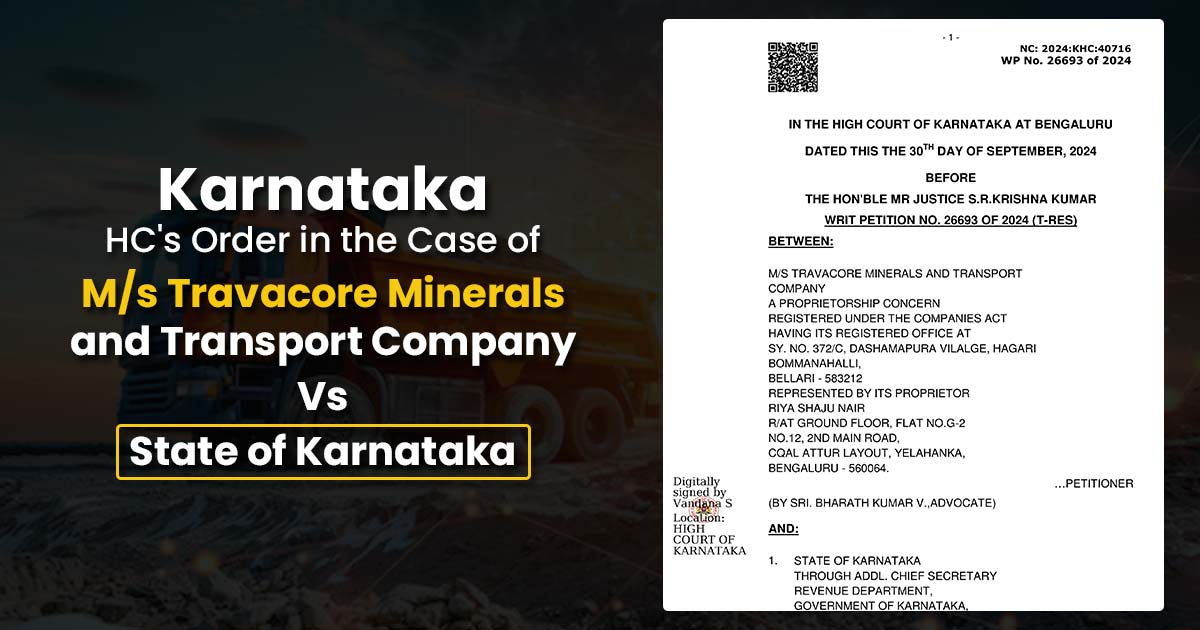
The Karnataka High Court in a ruling quashes the blocking of Input tax credit (ITC) via the tax authorities by not furnishing a proper hearing or establishing effective reasons.
The applicants’ Input Tax Credit (ITC) was blocked through the impugned order at Annexure – A on 09.07.2024, via invoking Rule 86A of the Central Goods and Services Tax Rules, 2017. On record material cited that before passing the impugned order, the pre-decisional hearing was not been furnished before the applicant nor did the impugned order include any cause to regard as to why it was crucial to restrict the ITC.
The order was contested by the applicant that restricted their ITC under rule 86A of the Central Goods and Services Tax (CGST) Rules, 2017, mentioning breaches of due process.
Via an arbitrary order furnished on July 9, 2024, the ITC was blocked the applicant claimed, by not having a pre-decisional hearing and without the reason. In order it said that the reports of enforcement authorities without an independent inquiry.
The High Court discovered that the impugned order does not have cogent reasoning, expressing only that the registered person was “non-existent or not conducting business” at their registered premises. The court carried this to be inadequate and indicative of a “borrowed satisfaction” from other officers, which is impermissible under the law.
Read Also: CGST Rule 47A: 30-Day Duration for Issuing Tax Invoices Under RCM
The Single Bench of Justice S.R. Krishna Kumar discovered that the tax authorities had losses to attain the two fundamental prerequisites under Rule 86A: first, the demand for valid “reasons to believe” that the ITC was ineligible or availed erroneously, and second, providing the taxpayer with a pre-decisional hearing. The court remarked that in this case, both conditions were bypassed.
Therefore, the court carried, was a breach of legal principles laid out in previous rulings, including the K-9 Enterprises v. State of Karnataka case, where the court had ruled that restricting the ITC demands independent satisfaction by the assessing officer, not mere reliance on reports from other departments.
The court highlighted the harsh implications of Rule 86A, as it can greatly hinder businesses by limiting their access to tax credits. Consequently, adhering rigorously to procedural protections and ensuring the presence of impartial reasons is required.
Thus, the Karnataka High Court directed the tax authorities to immediately restore the petitioner’s ITC, allowing them to file their returns and proceed with their business operations.
The court also allowed the authorities the freedom to start new proceedings under the law if necessary.
| Case Title | M/s Travacore Minerals and Transport Company Vs State of Karnataka |
| Citation | Writ Petition No. 26693 of 2024 (T-Res) |
| Date | 30.09.2024 |
| Counsel For Petitioner | Sri. Bharath Kumar V |
| Counsel For Respondent | Karnataka High Court |
| karnataka High Court | Read Order |









